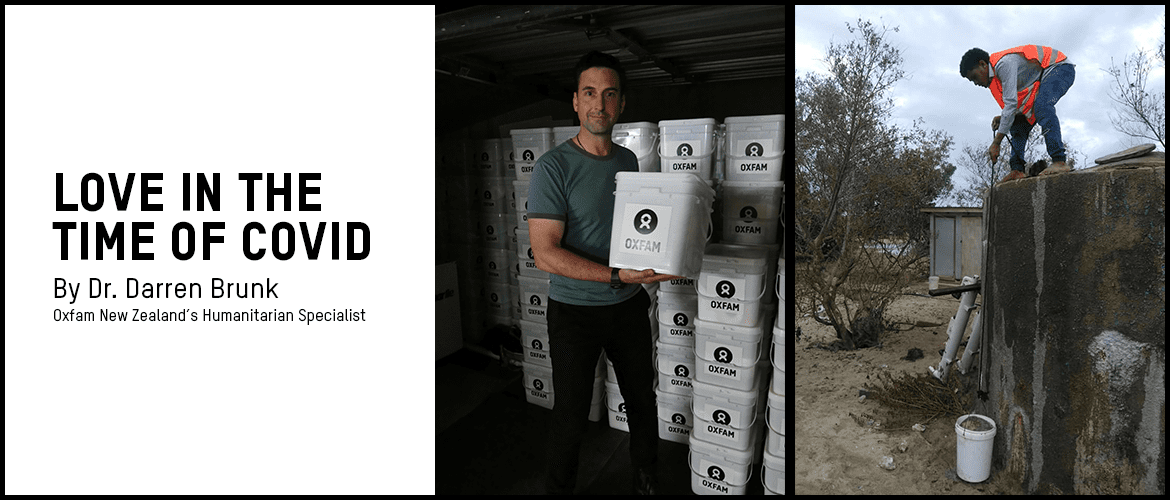An open letter to the New Zealand Prime Minister, Deputy Prime Minister and Minister of Foreign Affairs, and Minister of Finance, from fourteen leading New Zealand international aid agencies.
Dear Prime Minister Ardern, Deputy Prime Minister and Foreign Affairs Minister Peters, and Finance Minister Robertson,
We thank you for the unprecedented steps your government has taken to protect people in New Zealand from the coronavirus and its impacts. Today, we ask that you extend assistance to people in places far less able to withstand this pandemic.
With your inspiring leadership and guidance, here in New Zealand we have accepted the need for radical action to stop the coronavirus and are coping as best we can. Yet, as you know, even with all your government has done to support people through these hard times, people remain worried about their health and their jobs.
Like here, family life has been turned upside down across the world. It’s hard to imagine families crammed into refugee camps in Iraq and Syria, or in the squatter settlements on the outskirts of Port Moresby, living in close quarters, with no clean water close by, no soap, and the knowledge that there will be little help from struggling public health systems.
We’ve all become experts at hand washing and staying at home as we try to stop coronavirus and save lives. It is not easy, but we know how crucial it is to stop the virus. What would it be like trying to do this at a single tap in your part of the refugee camp, that 250 other people also rely on? This is the reality for more than 900,000 people in Cox’s Bazaar refugee camp in Bangladesh.
It is for these people that we ask your government to respond immediately to the unprecedented global coronavirus crisis by doing the following.
- Provide NZ$25 million in immediate, additional humanitarian funding as part of an emergency coronavirus response to boost life-saving assistance for people already living in the world’s worst crisis and emergency situations.
- Advocate for the cancellation of all external debt payments due to be made in 2020 by developing country governments.
- Protect and maintain existing commitments to aid and climate finance.
Coronavirus is anticipated to exact a catastrophic human toll in developing countries. Governments are taking rapid measures to stop the virus’s spread, but with limited resources, high debt levels, and weak health systems, they struggle to protect their citizens and economies. Imperial College estimates that without interventions at least 40 million people across the world may die.
The coronavirus has spread to every corner of the globe, but so can our compassion. We request that New Zealand contribute to the collective pandemic response: no one is safe until we are all safe, and New Zealand is in a position to help.
Yours sincerely,
- Care
- Caritas
- CWS
- Council for International Development
- Engineers Without Borders
- FairTrade A/NZ
- Family Planning
- Hagar New Zealand
- Oxfam
- Rotary New Zealand
- Tearfund
- Transparency International New Zealand
- UnionAid
- World Vision.






